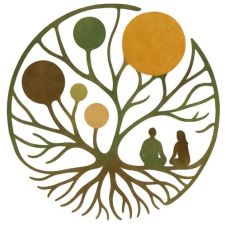Fostering Educational Relationships
“Rooted in relationship. Growing through complexity.”
DLAC in Austin
Earlier this year, we had the opportunity to present at the 2024 Digital Learning Annual Conference (DLAC) in Austin, Texas — a gathering of educators, technologists, researchers, and innovators leaning into the evolving terrain of digital learning. What we didn’t expect was the overflowing room, the palpable hunger for more human-centred, nuanced conversations about assessment, and the genuine, open-hearted reception of our work. It wasn’t just affirming — it felt like stepping into a shared field of longing.
Our session, Assessment in an AI World, wasn’t about AI tools or platforms. It was about people — the relationships, feedback loops, and growth-oriented cultures that must sit at the centre of any meaningful assessment system, especially in times of rapid technological change. We shared our practices from the Comox Valley and invited others to imagine how assessment might be triangulated not only across products and observations, but also across care, courage, and co-creation.
We were met not with skepticism, but with support and curiosity — a gentle reminder that many are ready for these conversations, and perhaps already walking this path in their own ways.
One session that stayed with us was led by Thomas Arnett from the Clayton Christensen Institute. He named something we’ve felt but didn’t always have language for: the gravitational pull of existing value networks — the underlying structures, incentives, and assumptions that can pull even the most promising innovations back into the orbit of the status quo.
This naming mattered. It helped frame why certain initiatives stall, why visionary ideas often get neutralized into familiar patterns. And it affirmed what we’ve witnessed in our own district: that disruption isn’t enough. Without careful tending to the relational, institutional, and emotional ecosystems in which change unfolds, even the best innovations can become co-opted by old habits of thought and practice.
Austin offered more than just learning. It welcomed us — with its layered histories, vibrant diversity, and moments of unexpected wonder. Standing in the Texas Capitol building, we encountered a story both proud and painful — a complex legacy of leadership, exclusion, resilience, and struggle. We saw echoes of our own local contexts in the tensions held there.
And perhaps that’s the deeper thread: transformation is never tidy. It unfolds in the friction of values, the discomfort of uncertainty, and the persistent tug of “what has always been.” But it also emerges through companionship, clarity, and the willingness to stay with the questions — even when the answers are unclear.
We return to the Comox Valley not with answers, but with a broadened horizon — an international glimpse into what’s possible when communities commit to slow, relational, and courageous transformation. We’ve seen how digital learning can deepen equity and agency. We’ve also seen how it can replicate harm. What makes the difference, we believe, is how we hold the work — together.
Let this be less a report and more a conversation-starter. If anything we’ve shared stirs something in you — a curiosity, a contradiction, a “yes, but…” — we’d love to hear it.
Let’s resist the pressure to simplify complexity. Let’s resist the urge to preach. Instead, let’s keep asking:
What becomes possible when we honour transformation as relational, uncertain, and slow — and still, we choose to show up anyway?
About RelationalEd Collaborative
RelationalEd supports educators in reimagining learning as a relational, student-centered practice. We work alongside schools and communities to foster assessment, design, and pedagogy rooted in care, complexity, and co-creation.
Step into a field of education rooted in relationship, reflection, and growth. Explore research-informed practices and relational tools that support learner agency, engagement, and meaningful transformation. Discover new rhythms of assessment, design, and pedagogy—and join us in co-creating education that responds to complexity with care, and shapes a more learner-centered, holistic future for education.
Join Our Learning Community
Subscribe to our newsletter for the latest updates, oppotunities, and insights on education and relationship building.

© 2025 RelationalEd Collaborative

